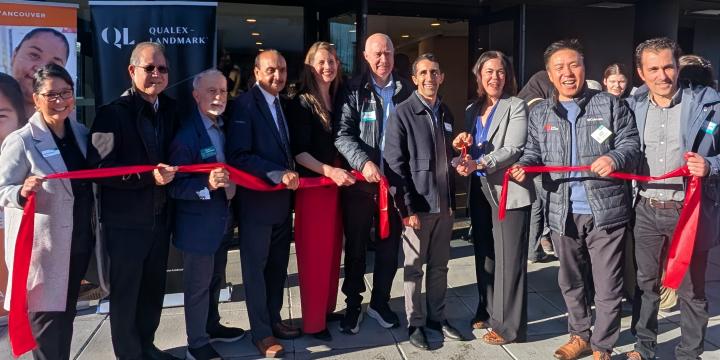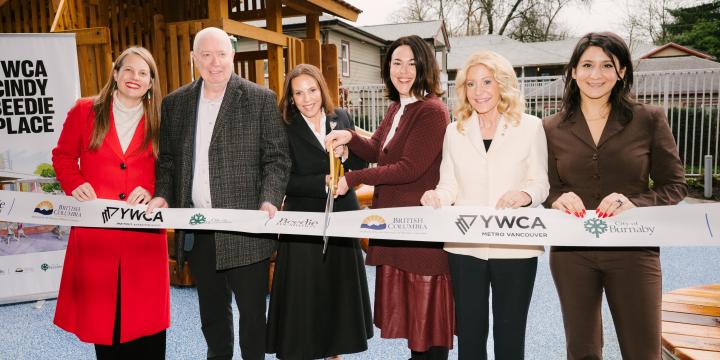
YWCA Calls For Robust Social Investment For A More Inclusive BC
At YWCA Metro Vancouver, we believe that investing in an inclusive economy is more critical than balancing the budget within the next decade.
That’s why we’re calling on the provincial government to make robust social investment in order to take bold action on poverty, affordable housing, child care and climate change, and create a skills-based economy that supports all British Columbians.
The Select Standing Committee on Finance and Government Services is currently holding province-wide consultations to seek the views of British Columbians on priorities for the 2023 provincial budget, before presenting a final report with recommendations to the legislative assembly.
We have made three recommendations to the Committee that would help lead us towards a more just and equitable province for everyone.
A growing body of evidence shows that public spending comes with major economic benefits, including more jobs and higher productivity.
Investing in women and families now will pay dividends long into the future.
Therefore, our recommendations to the Select Standing Committee on Finance and Government Services for BC Budget 2023 are:
Recommendation 1
Build more resilient communities and a post-Covid economic recovery that focuses on better economic outcomes for women, especially racialized and Indigenous women.
Achieve this by resourcing the adoption and implementation of Gender-Based Analysis Plus, including training supports for local government, to make tangible progress on equity, diversity and inclusion.
Municipal governments are at the front lines of complex social and environmental challenges, and across Metro Vancouver residents face post-pandemic economic challenges, as well as a housing crisis and high cost of living, which has been compounded by historic inflation. With limited resources, municipal governments are stretched to support vulnerable residents, especially single mothers, women, Indigenous, racialized and newcomer women, as well as those who face accessibility challenges due to health and ability differences.
Robust investment is needed immediately to support municipalities to adopt a GBA+ framework so that cities are able to provide citizens with intersecting opportunities that centre equity, diversity and inclusion.
YWCA Metro Vancouver is currently delivering a three-year project called City Shift that is engaging local municipalities to implement a GBA+ framework in order to improve outcomes for women and girls.
Through our stakeholder engagement, we hear from cities that they want to make progress on equity, diversity and inclusion, but lack the resources and expertise to get beyond an initial commitment. This gap in equitable opportunities leaves behind cities’ most vulnerable populations who are already faced with increasingly difficult choices to make ends meet.
Recommendation 2
Immediately increase income assistance rates to the poverty line as measured by the Market Basket Measure and commit to launching a full-scale review of all income assistance programs with the goal to evolve from providing financial assistance to helping people, particularly women, break the cycle of poverty.
In British Columbia, as across Canada, economic insecurity disproportionately impacts women and those facing overlapping forms of marginalization. In 2021, 58% of employees earning minimum wage or less in BC were women1. During the pandemic, women’s employment dropped by 17%, with single mothers of young children experiencing some of the highest unemployment rates, while many also experienced the increased burden of child care and home-schooling during school closures.2
While we applaud the BC Governments commitment to service parity, the current income assistance model is outdated and in need of revamping. Recipients’ support ceases once employed, with no bridge time to transition past training, probation, or the gap before the first pay cheque. This creates further challenges, particularly for women and marginalized individuals entering the workforce with no financial cushion.
Consultation will be a key component in moving forward with a review of the income assistance program. We recommend drawing on the Single Parents’ Employment Initiative (SPEI), which provides a more successful model and framework, and shifts from the current punitive system to one that supports meaningful employment. For example, SPEI provides clients transitional support for a year upon successful obtainment of employment, bridging the gap from income assistance to sustained employment.
Easing restrictions placed on people accessing income assistance, encouraging training and upskilling, and providing individuals with bridge funding will support a move towards a skilled workforce leading to economic stability.
Recommendation 3
Provide accessible employment opportunities, with matching opportunities to acquire skills, that attract, retain and support women workers, especially racialized and Indigenous women, in male-dominated and high-paying sectors by expanding access to paid internships, skills training, and multi-year education pathways (including funds for transportation and child care).
To build a more equitable and sustainable future economy, the province must create opportunities to attract and retain women and other underrepresented groups, especially in BC’s fastest growing sectors like tech and the trades. These measures will result in a guaranteed high return on investment.
Our recommendation aligns with several promises made by the provincial government, including those in A Path Forward, the implementation plan from the Missing and Murdered Indigenous Women and Girls inquiry3, as well as the province’s goal to “assist more people from underrepresented groups get their first job in the tech sector, while... prioritizing placements for women, Indigenous people, people of colour and others currently underrepresented in B.C.’s tech sector.”
We recognize the progress to support workers, including the Community Benefits Agreements successfully hiring women and Indigenous workers at high paying rates in the trades. However, unless we invest in sustained programming and training, we will not be able to upskill the most marginalized to meet the needs of the evolving labour market. Without it, this population remains marginalized, lacking sustainable attachment to the labour market.
More long-term, continuous funding must be invested to create a lasting and supportive system that keeps people skilled and employed at livable wages. Employment forecasts predict that the largest gaps in the province’s labour market will be for workers in health care and social services, professional and technical services, retail trade and construction with eight out of 10 jobs needing post-secondary qualifications or skills training.
Women and underrepresented groups can help fill this gap with the right training, support and access to child care.
Photo by Alejandro Luengo on Unsplash

